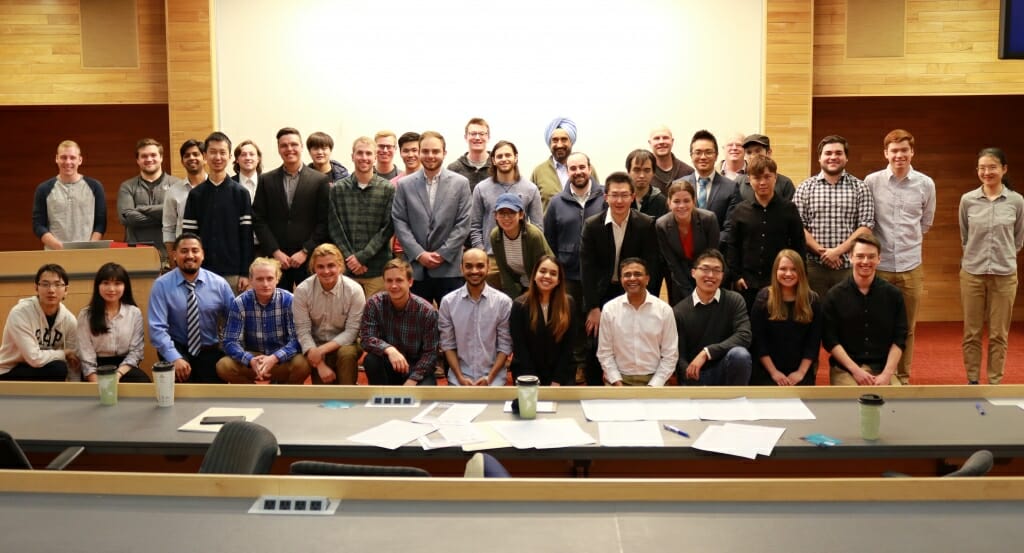

Four projects created by computer-science students at the University of Wisconsin–Madison won a total of $12,000 in prizes in the computer science department’s NEST competition on April 6.
“I’m excited for two reasons,” said organizer Jignesh Patel, professor of computer science. “The first-prize winner, Moonshot Learning, already has made sales – indicating that it’s answering a real need in the marketplace. And second, two of the four winners were headed by women, who have been traditionally under-represented in our field.”
For the first time, the business accelerator Gener8tor was involved in helping contestants develop their ideas into compelling entries. Twelve groups of UW–Madison students entered the ninth annual competition called NEST, short for “Nest for emerging software technologies.”
Competitions that encourage entrepreneurship are fundamental to economic and social progress in Wisconsin, says Patel.
“If you look at every sector of our society and economy, even if it seems remote from technology, you can see it’s being dramatically influenced by technology. Education? You can’t go into a class without seeing at least three categories of computer devices. Even when people study ancient arts and languages, computers play a crucial role. Or look at retail, finance, transportation, manufacturing and health — all are profoundly being transformed by technology. And one of the most efficient ways to bring technology into society is through the entrepreneurial route, as was demonstrated by these great UW–Madison students.”
The contest was sponsored by Epic Systems, Microsoft, and an anonymous UW–Madison computer-science alum, who generously funded assistance from the Gener8tor accelerator. The contest was judged by Carl Dvorak of Epic, Max Lynch from Ionic software, and Andy Walker from Rock River Capital.
By David Tenenbaum | University Communications